
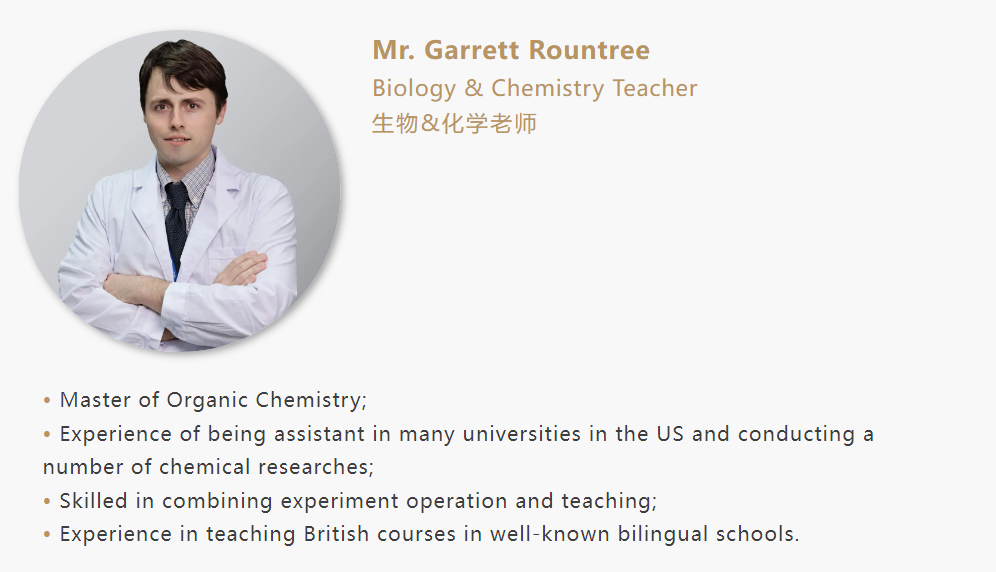
Chemistry class covers the study of matter and its properties, as well as the changes it undergoes. Students will learn about atoms, molecules, chemical reactions, and bonding. They will also explore the periodic table, stoichiometry, acids and bases, and thermodynamics. Practical applications of chemistry, such as environmental chemistry and forensic science, will be discussed. Through laboratory experiments and problem-solving, students will develop critical thinking skills and scientific inquiry. Chemistry is a fundamental subject for those pursuing careers in science, engineering, medicine, and many other fields.
In IGCSE Chemistry class, students explored the fascinating world of chemical reactions, periodic trends, and atomic structures. They conducted exciting experiments such as synthesizing new compounds, analyzing unknown substances, and measuring reaction rates. Throughout the year, they learned how chemistry impacted our everyday lives, from the food we eat to the materials we use. They also developed critical thinking and problem-solving skills as they worked through complex concepts and calculations. Now at the end of the year, students have gained a deeper understanding of the central science that connects all branches of science and technology.
IGCSE Chemistry takes students on a scaffolding journey from the very basics and slowly builds to larger concepts and applications. Initially, students learned how atoms bond to form molecules, and how these molecules interact with each other to create the states of matter. Then, these elements are arranged based on chemical properties into the periodic table of elements. Understanding of the periodic table can then explain reactivity including metals, acids, bases, and more. Chemical reactions are then measured using moles and studied using thermodynamics. Lastly, the IGCSE students were introduced to the magical chemistry of carbon, organic chemistry, which they will continue to study in the A-Level.
In addition to the knowledge learned, IGCSE Chemistry used complimentary experiments to increase concept understanding. IGCSE Chemistry experiments are exciting and engaging for students. Some experiments performed this year include the reaction between carbonates such as baking soda and acids such as vinegar, which produce a dramatic eruption of carbon dioxide gas. Another intriguing experiment performed was the electrolysis of water, which demonstrated the separation of water into its component gases, hydrogen and oxygen, as well as showing what dissolved metals are present in the water. Students also learned about acid-base reactions by performing a titration experiment using indicators with color changes to determine the endpoint. These experiments provided hands-on learning opportunities that helped students to understand the fundamental principles and concepts in chemistry.
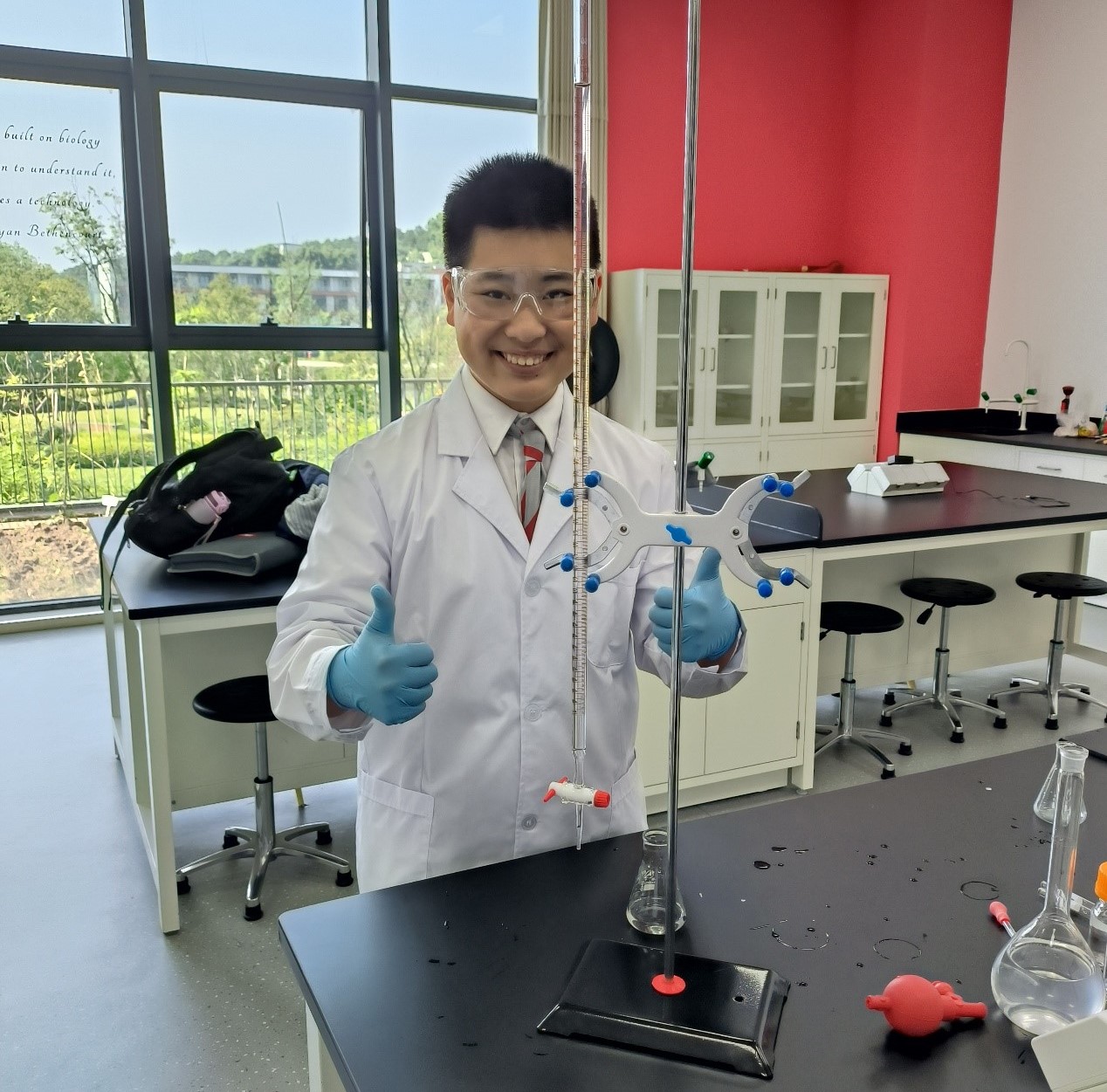
• Oscar Z from Year 10 happy to perform a titration.
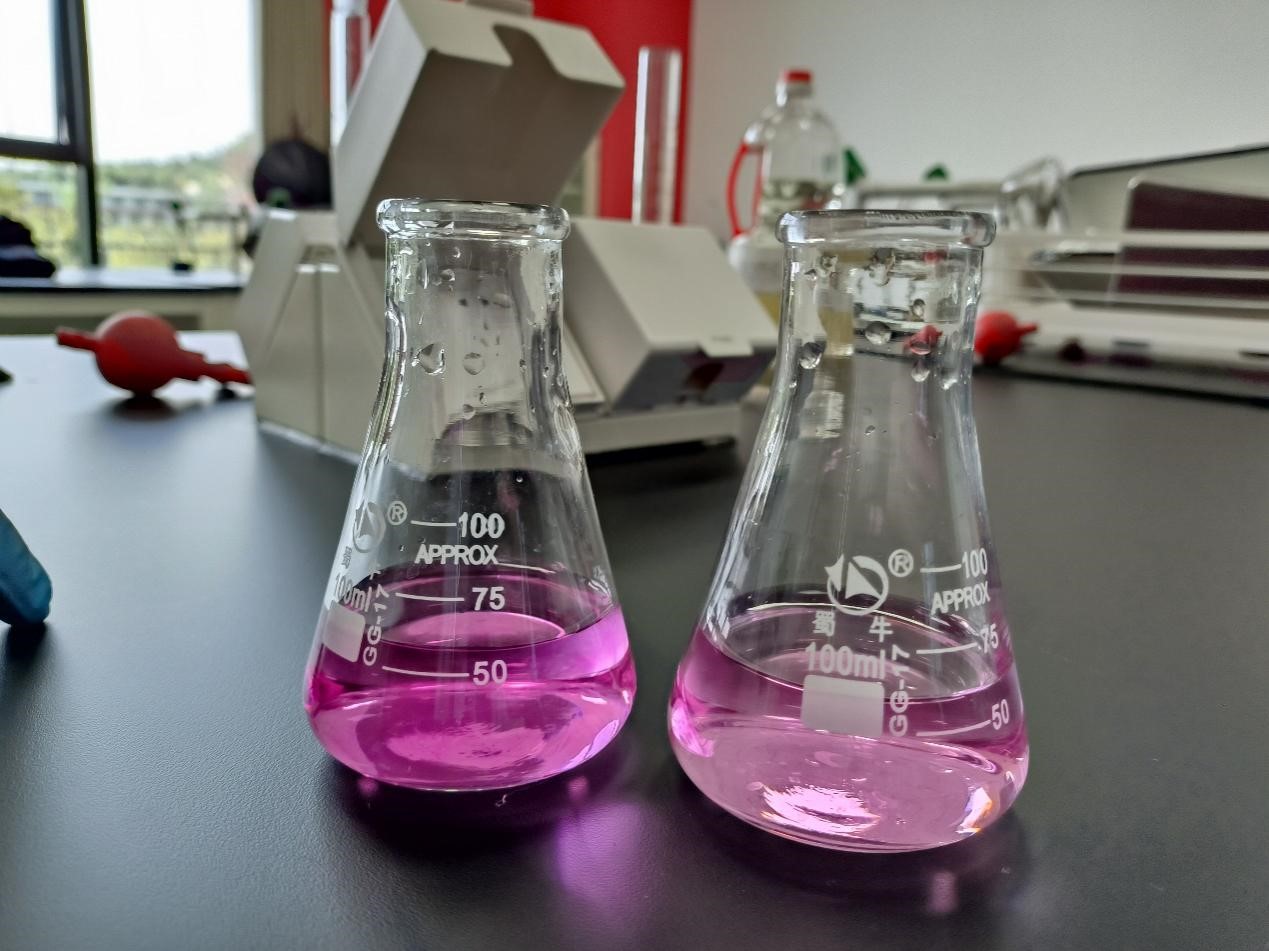
Pink solutions after a titration
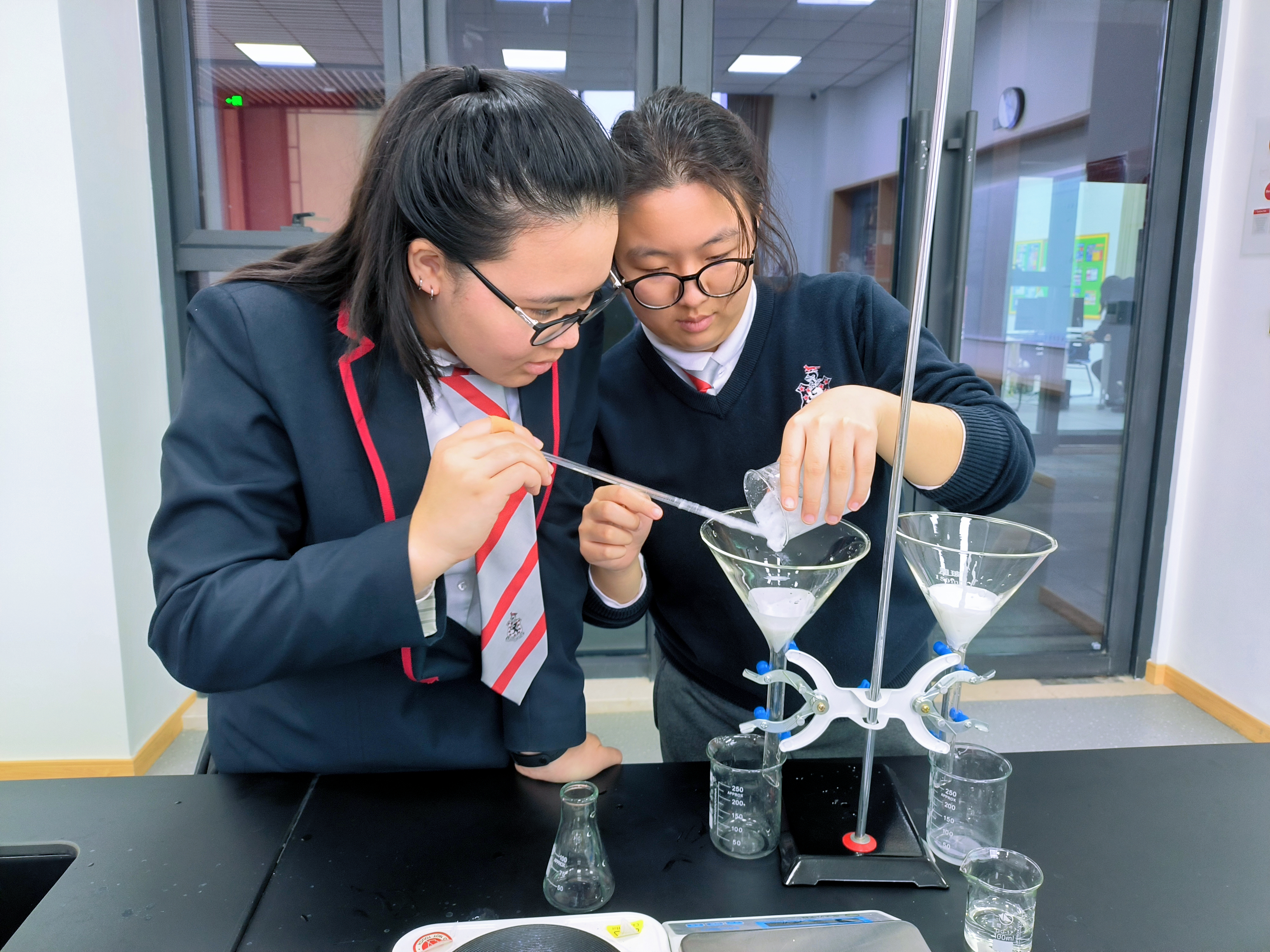
• Cindy J and Sylva H from Year 11 filtering a precipitate of zinc carbonate.
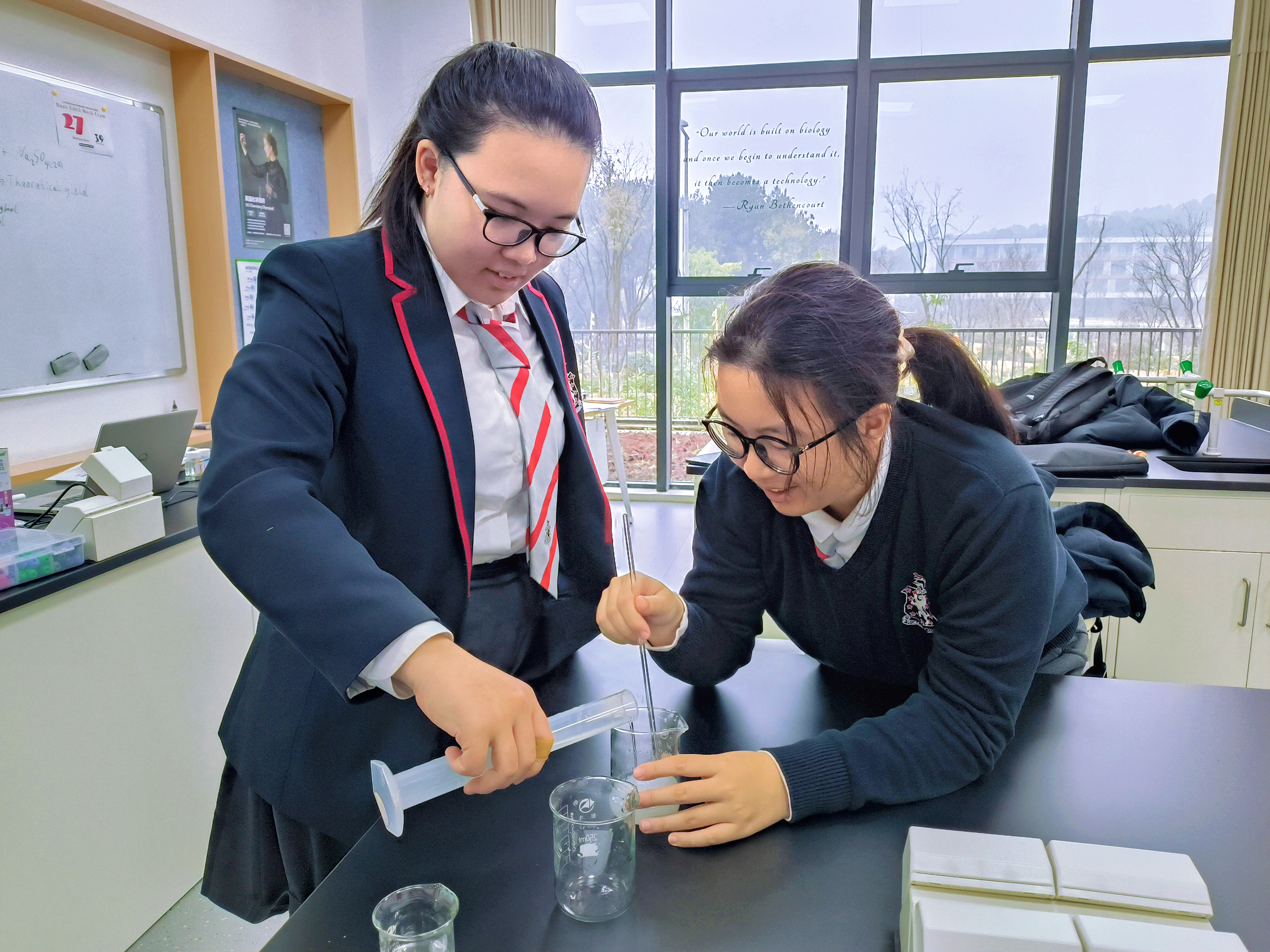
• Cindy J and Sylva H from Year 11 work to filter a solid from a mixture.

